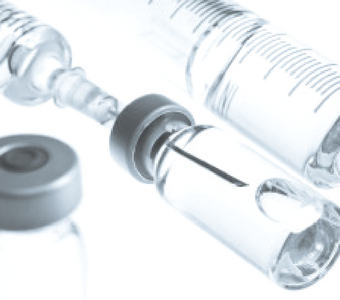The price action in shares of Questcor Pharmaceuticals (QCOR) Thursday was telling, with a quick reaction to a negative article published on the company, followed by strong buying activity in the name once the market realized that the article offered little substance. In fact, the information in the article was based on a study published in September, which actually defines how Acthar Gel should be prescribed. Acthar should be prescribed after steroids have proven to be inappropriate or ineffective in certain patients. The study cited in the article, published by prescription benefit manager Prime Therapeutics and entitled Managing The Cost of Specialty Drugs, states, “Given the dramatic difference in cost, corticosteroids should be first-line treatment for most conditions for which Acthar Gel is approved.” Questcor management doesn’t dispute this point, and the company only targets patients for which corticosteroids have already been tried and used unsuccessfully. Further, the study featured in the article only looks at the Infantile Spasm (IS) indication, and in its conclusion that 96% of Acthar prescriptions are “unnecessary”, study author Prime Therapeutics ignores that HP Acthar Gel is indicated in multiple other conditions, many of which are deemed medically necessary by major health insurers like UnitedHealth Group (NYSE:UNH). According to industry professionals that PropThink spoke with, the study also reads as an advertising piece for health insurers to contract with Prime Therapeutics for its Utilization Management services, and simply features Acthar Gel because of its high price and use in a limited number of patients. As a result, the study is old news and doesn’t offer information that differs from the way that Questcor currently promotes and sells Acthar Gel.
Potential for strong Acthar script trends is the key reason that shorts may cover. QCOR shares reacted quite negatively when the article was first published, with shares down 3.3% by mid-morning given the publisher’s (Citron Research) strong following. However, once the market interpreted the article and realized the lack of new, impactful information, QCOR snapped back and closed up 3.1% for the day. The content of the article and the swing in the stock demonstrate that the short story has played out, and investors are ready to begin valuing QCOR at more reasonable levels. Our prior article pointed out that QCOR’s management indicated that Acthar Gel is continuing to grow, hence the company’s move to accelerate its quarterly dividend payment. Even flat growth justifies significant cash flow and a higher valuation than the stock’s current price. For example, using a 4x sales multiple on Acthar’s annual run-rate from 3Q12 ($560M) implies a market cap of $2.24 billion, or $37 per share, with further upside if sales demonstrate better growth. The stock could climb to the high $30 to mid-$40 range as investors gain confidence that fundamentals remain intact ahead of earnings or prescription news. Should the company release favorable prescription trends for Acthar Gel before year-end, as we anticipate, this could be the catalyst that gets QCOR trading into the $30 range. As a result, this could be an event that the shorts don’t want to hang around for.
Technically, QCOR has firmed up and could break out to the high-$30 level. On Thursday QCOR held key support at $24.50, which is now a quadruple bottom with further support from the 50-day Simple Moving Average (SMA) residing at $24.00 just below. On the upside, resistance lies at $27.50, $28.67 and the $29.60 levels. Notably, if QCOR breaks through this last resistance point, a move to $33.00 is likely, and the chart suggests a move towards $37.57 would be next.



